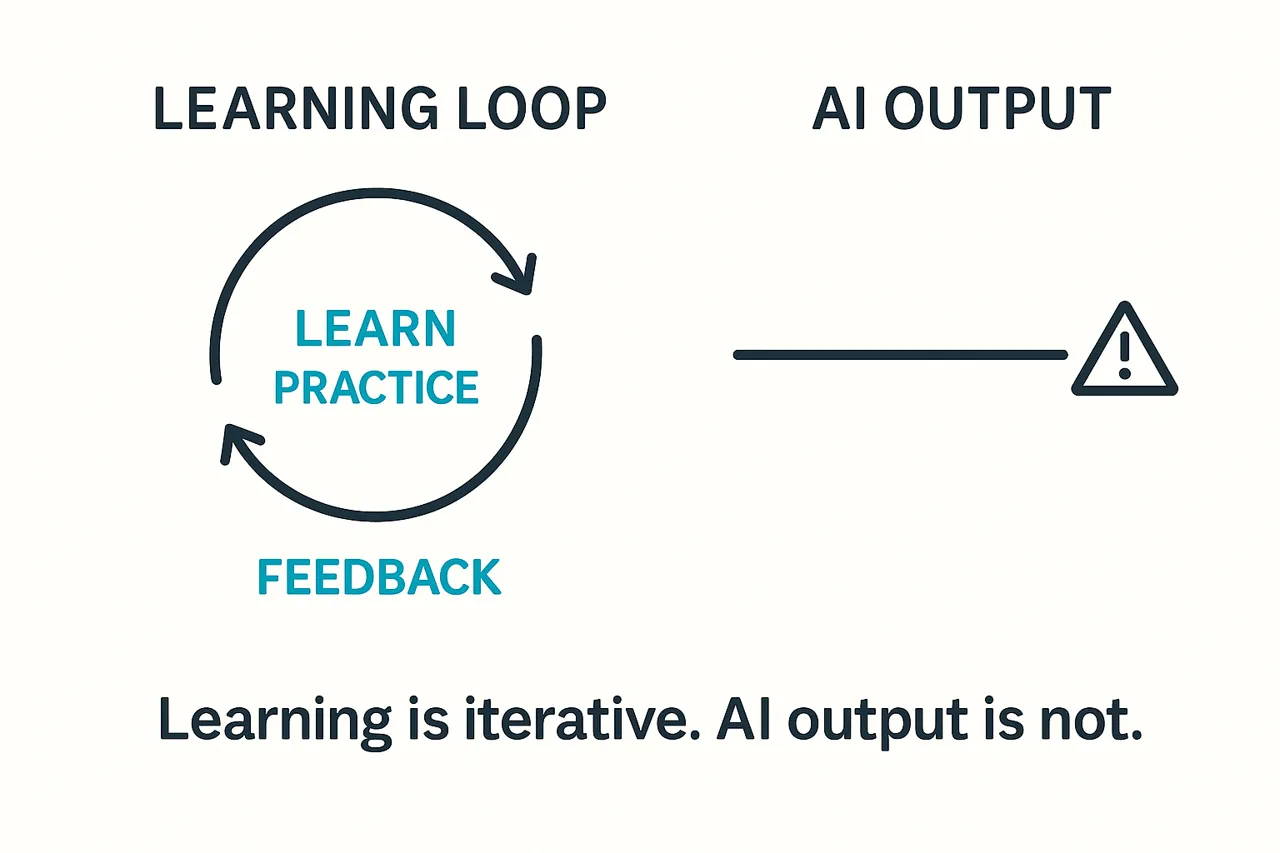AI has already changed how we access and generate information. With a few keystrokes, we can get a summary, a slide deck, or a strategy memo. It can create incredible efficiencies across just about any workflow. But there’s a trap in mistaking efficiency for understanding.
The ability to generate content is not the same as the ability to learn. And in the rush to automate, we risk losing sight of what real learning looks like.
What AI Can Do Well
Generative AI is excellent at remixing patterns. It can scan mountains of text, mimic tone, and produce outputs that sound confident. That makes it a great assistant for tasks like:
- Drafting content
- Brainstorming directions
- Providing overviews on known topics
It’s fast, fluent, and useful, especially for tasks that need to be done quickly.

What It Can’t Do
But AI doesn’t know what it knows. It doesn’t check sources or grasp context unless you build that context for it. And it is incapable of learning from experience, feedback, or reflection.
That matters because learning is more than pattern recognition. It requires judgment, making sense of nuance, weighing trade-offs, and applying knowledge to novel situations. It’s iterative, emotional, and often ambiguous. That kind of learning can’t be automated.
As futurist Bernard Marr explains in Generative AI in Practice, GenAI excels at replicating patterns, but its power comes with real risks. He warns that overreliance on automation can “wither key human skills,” including critical thinking and discernment, unless organizations cultivate a culture of inquiry and adaptability. Without that, AI may accelerate workflows but erode understanding.
Why This Matters for L&D
If we assume AI output is inherently accurate or useful, we risk confusing speed with clarity. And when employees base decisions on unverified or decontextualized content, the downstream effects compound: poor judgment, misaligned values, and eroded trust.
L&D leaders have a key role to play here. Not in resisting AI, but in framing its role clearly:
- As a tool to support inquiry, not to replace it
- As a prompt for discussion, not a final answer
- As an accelerant for learning, not a substitute for it
The Value of Verified Expert Knowledge
This is where Verified Expert Knowledge (VEK) becomes indispensable. Unlike scraped data or auto-generated output, VEK is filtered through the lens of expert human judgment. It carries context, credibility, and a clear purpose.
It is vetted knowledge that has been carefully curated and vetted by experts that speeds up the path to real understanding by helping them focus on what matters while tuning out extraneous and irrelevant content noise.
Ultimately, learning isn’t about how quickly you can consume information. It’s about how well you can use it.
Take a deeper dive in the getAbstract library…
Generative AI in Practice by Bernard Marr
Generative AI, the American worker, and the future of work by Molly Kinder, et al.
getAbstract delivers Verified Expert Knowledge that cuts through the noise so your decisions are based on insight, not just information.








